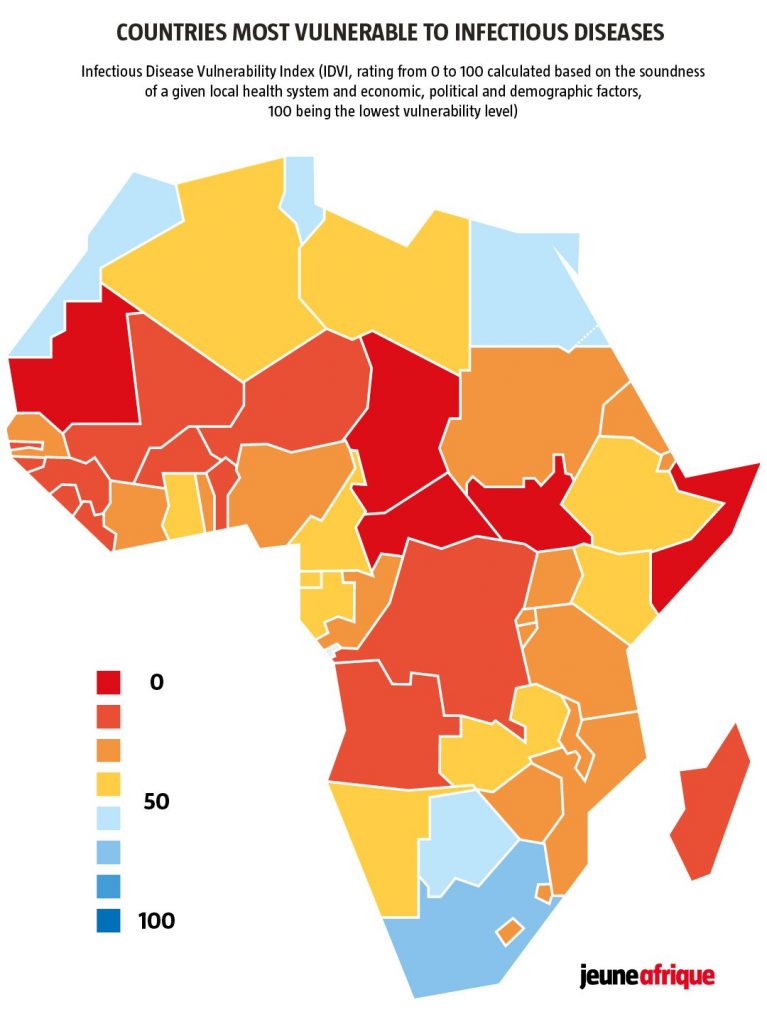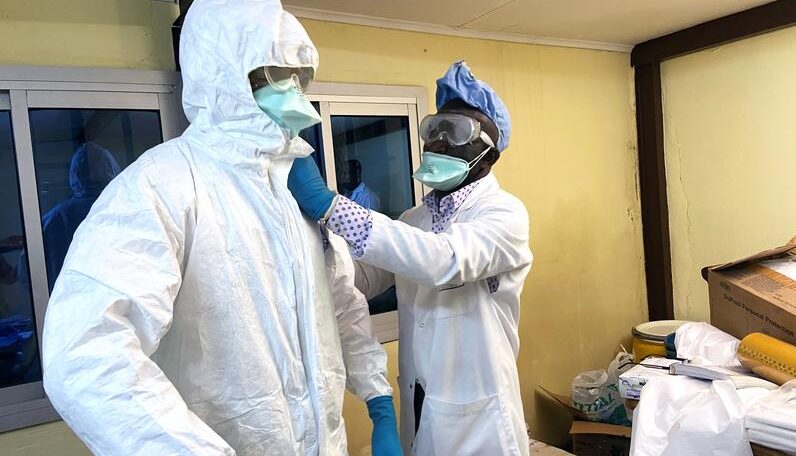Which countries are most at risk?
People were hoping the coronavirus – or COVID-19, as it has been officially renamed by the World Health Organization (WHO) – was contained, stabilized, or even in decline. However, once Chinese authorities adopted a broader definition of coronavirus cases, the number of people infected increased dramatically from around 44,000 on February 12 to over 60,000 on February 13, with the vast majority of cases being reported in China. and, so far, no reported cases in Africa.
However, WHO and the African branch of the United States The Centers for Disease Control and Prevention (CDC) prefers to be careful: statistically speaking, it is highly unlikely that Africa is the only continent not affected by COVID-19, and it is possible that there are people in Africa who have the virus but have simply not yet been detected.
At present, the various suspected cases in countries like Côte d’Ivoire and Burkina Faso have turned out to be false alarms.
In order to go beyond basic probabilities and platitudes, scientists from Europe, Africa and the United States have teamed up to map, as precisely as possible, the risk of importing the virus into Africa. Which countries are most at risk and where is the disease most likely to be adequately eradicated?
From the most vulnerable countries …
To answer these questions, doctors, epidemiologists, demographers, and public health experts compared the data, created a methodology, and drew up maps.
The results of their work, carried out under the direction of experts from INSERM at Sorbonne University, have been posted on medrxiv.org and draw up a list – accompanied by various maps and graphics – of the African countries most vulnerable to the disease. arrival of COVID. -19.
READ MORE: Coronavirus: Africa quarantines China
Part of the originality of the study is that it takes into account the volume of air links between each African country and the Chinese regions strongly affected by the virus (see map 1).
Based on this criterion, Egypt, Algeria and South Africa stand out the most and, since the first infected individuals are very likely to arrive in Africa by air, are the most at risk.
On the bright side, these three countries, particularly South Africa, rank among those with the strongest health systems and are probably the most capable of containing the epidemic.
Next come Nigeria and Ethiopia because of their close ties to China. They are followed by Morocco, Sudan, Angola, Tanzania, Ghana and Kenya.
… to the countries best equipped to fight COVID-19
The study also takes into account two indicators called SPAR (State Party Self-Assessment Annual Reporting) and IDVI (Infectious Disease Vulnerability Index). SPAR, which aims to assess the level of capacity of the health system in each country, may not be reliable because it is based only on information reported by local authorities.
READ MORE: Coronavirus: Debate over evacuation of African citizens in Wuhan
The IDVI (see map 2) appears more robust because it is produced by international experts and takes into account a wide range of factors, such as the state of health systems, economic development, the spread of previous epidemics, and , a particularly crucial point in the case of the coronavirus, demography and population density.

Based on these factors, the countries best equipped to fight COVID-19 are South Africa, Egypt, Tunisia and Morocco, while the most vulnerable are Somalia, Chad, the Republic Central African Republic and Mauritania. But then again, there is a silver lining: although vulnerable, these countries are not, it seems, the most likely to have infected individuals arriving in their respective countries.
Pioneers, leaders and titans
Fill out the form to download The Africa Report’s 2019 list of the 100 Most Influential Africans for free. Get your free PDF by filling out the following form.
In the United States, researchers at Johns Hopkins University in Baltimore have developed a daily tracking of global COVID-19 cases that is updated very regularly. According to their calculations, Johannesburg airport is most likely to be the first place to “import” the virus to the continent.
That said, their prediction is based entirely on statistics. and has therefore been strongly criticized by the Chinese government.
During a press conference on February 5, Chinese Ambassador to France Lu Shaye made very harsh remarks about the different scenarios imagined by Western researchers and which, according to him, are pure speculation and only serve ‘to cause panic.
Previous

